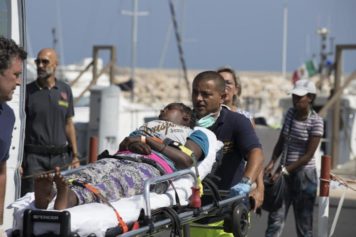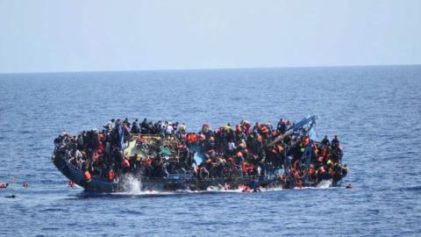The harrowing ordeal of Colonel Muammar Gaddafi‘s children over the past year just got worse, as the family decided to flee Algeria, where they had been staying since Gaddafi’s death last year, because they grew frustrated with the restrictions imposed on them.
The treatment of Aisha Gaddafi, a lawyer and most prominent member of the family, her brother Hannibal and half-brother Mohammad is of intense interest to the Libyan government, which is concerned that the Gaddafi clan is living freely and in luxury in Algiers. But the Libyan government is grappling with the rise of independent militias and widespread lawlessness, highlighted by the deaths of American Ambassador Chris Stevens and three other Americans during an attack on the consulate in Benghazi.
While it is not known where the Gaddafi children went, Niger is a likely choice. The UN banned the Gaddafis from flying by air, so their options are extremely limited. They are not trustful of other countries’ reliability—Mauritania extradited Abdullah Senussi, Aisha’s uncle and Gaddafi’s intelligence chief back to Libya this summer. In Niger, a third brother, Saadi, lives on the presidential compound.
The family sought to flee reportedly because Aisha Gaddafi—a former UN Goodwill ambassador, close ally of former Iraq president Saddam Hussein and a former member of Hussein’s legal team in 2004—is said to have grown increasingly frustrated with the restrictions on her communications imposed by the Algerian regime.
Over the last year, Aisha’s husband and two of their three children were killed in the bombing by the French Air Force that also killed her father. After the remaining family members were snuck out of the country, through the desert, and made their way to Algeria, Aisha reportedly gave birth to her fourth child, a baby girl, on August 30, 2011.
The family recently hired Tunisian lawyer Bashir al-Said to represent their campaign for an International Criminal Court investigation into Col Gaddafi’s death, saying that the bombing of the civilian compound was a violation of international law.
But the Algerians disrupted her discussions with her legal team, supposedly because they feared that she is engaged in political activities, something they have banned.
When the Algerians and Libyan officials made a deal to allow Aisha’s mother and Gaddafi’s widow, Safia Gaddafi, to return toher hometown of Baida, Libya as a free woman, the rest of the family apparently decided it could no longer trust the Algerian government.
They lived in a heavily guarded “gilded cage” just outside Algiers—Aisha, her brothers, their wives and children and some servants.
Saadi Gaddafi had been able to host parties at Niamey restaurants in Algeria until the government was embarrassed by reports of his relative freedom, causing a stink with Libya.Saif al-Islam Gaddafi, Col Gaddafi’s heir apparent and the most important surviving member of the regime, is in Libyan custody and awaiting trial.In their rush to take down the late Col. Muammar Gaddafi last year in Libya, NATO forces wound up killing at least 72 civilians—including 24 children and 20 women—who in most cases were not even in areas where there was a military presence, a violation of international law, according to a report released by Human Right Watch earlier this year.
The report directs much-needed focus on a subject that doesn’t get nearly enough attention when the U.S. and its Western allies, such as the U.K., France, Italy and Norway, wade into countries in Africa and the Middle East to deal with regimes they consider unfriendly—the unconscionable toll their bombs take on the innocent citizens, many of them children, who are wiped out and dismissed as collateral damage.
But organizations like Human Rights Watch are dedicated to making sure their stories get told as much as possible. They issued the report as NATO members are gathering for a summit next week in Chicago.


